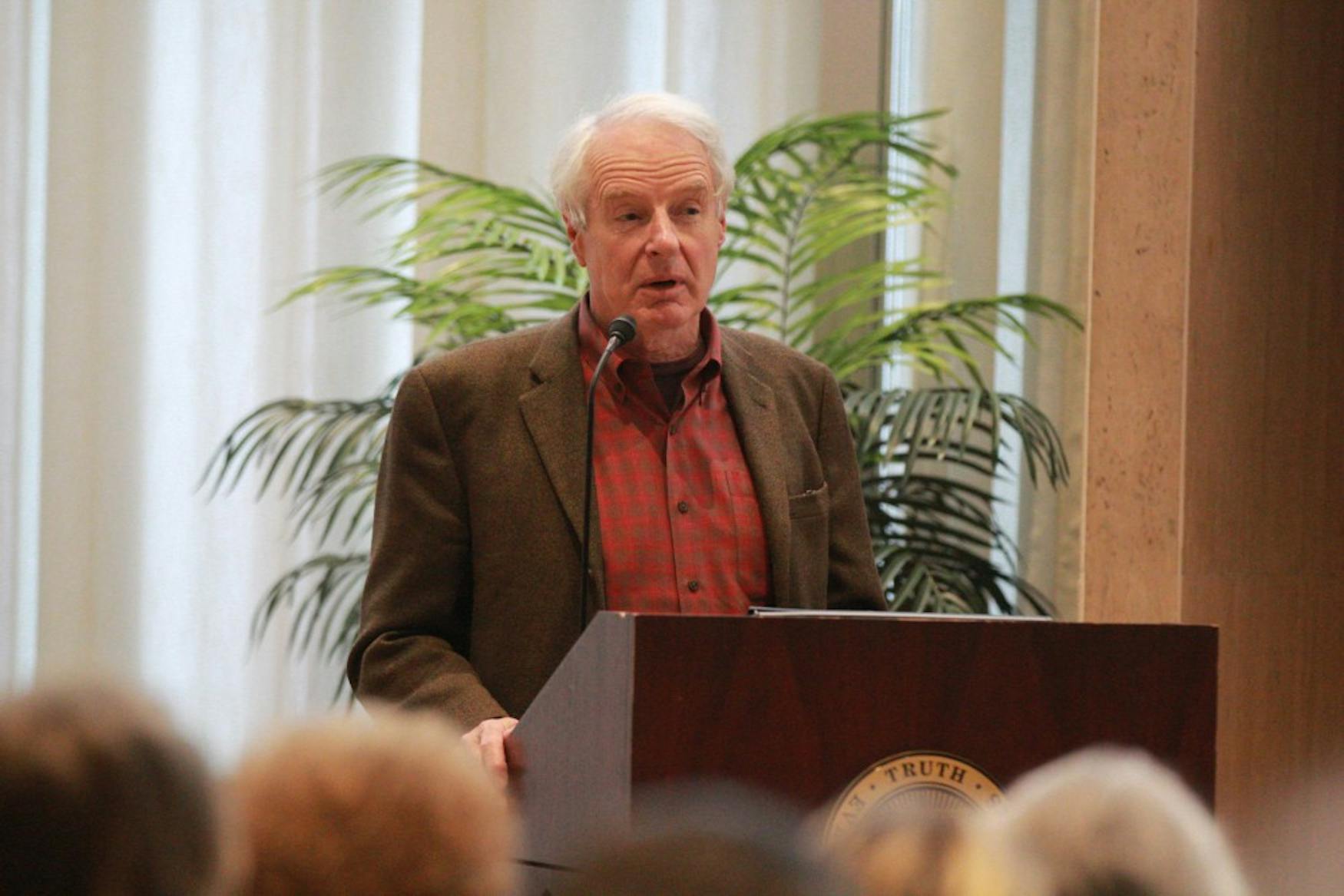Historian holds talk on WWI
As this year marks the centennial anniversary of the start of World War I, the History department hosted historian Adam Hochschild of the University of California, Berkeley Graduate School of Journalism to speak about his research on the war yesterday.
Hochschild said at the lecture that World War I “had been an obsession of mine from a young age.” He said that the war “remade our world for the worst in every conceivable way.” He highlighted the fact that more than 20 million military and civilian deaths resulted from the war—more than six times as many people than had been killed in any war in Europe previously.
Hochschild explained that World War I was “started very easily because people had several illusions.”
He first mentioned the illusion of “quick and easy victory.” This was the illusion—particularly among the Germans and French—that men sent off to battle would return home quickly and unscathed.
The second illusion, he explained, was “the belief that you would be shooting at the enemy, but the enemy would not be shooting at you.” To illustrate his point, Hochschild presented photographs of French and Austro-Hungarian military battalions dressed in brightly colored combat uniforms. He explained that these uniforms were a reflection of the prevailing belief that the war would be a peaceful demonstration of national pride, rather than a bloody conflict.
The third illusion that Hochschild identified was that of “the cavalry itself, the idea that men on horseback could play a role in warfare in the industrial age.” Because cavalry had previously been a source and symbol of military glory, several armies, especially the French army, invested enormous funds and efforts to bolster their cavalry units, he said. Many Western European nations encountered a harsh reality when faced with machine guns, flamethrowers and poisoned gas.
Hochschild also pointed out that, just as had been the case in earlier European wars, it was primarily the nobility and members of the upper class who occupied the front lines of combat units. Military careers were highly encouraged by the upper classes, and, as a result, huge numbers of the elite were wiped out in battle.
He continued on to say that World War I brought with it the “beginnings of a totalitarian control of civilian populations that we really hadn’t seen before.” Many countries refused to allow refugees to flee national borders, governments initiated mass propaganda campaigns, and many nations denied their citizens basic civil liberties. European imperial powers with colonies in Africa and Asia—such as those of Germany and France—conscripted millions of people in their occupied territories to work in war industries. Hochschild also cited the practice of governments to draft boys under the age of 18 into their national armies.
Hochschild described World War I as the “first major propaganda war,” showing the audience images of cartoon propaganda compelling men to enlist. “If you didn’t volunteer to fight, you were cowardly and guilty, and worst of all, you were effeminate,” explained Hochschild.
“In the face of this ceaseless barrage of propaganda, it is important for us to remember … the people who spoke out against it,” Hochshild said of the war. He asserted that many tragedies of the war could have been prevented if citizens and governments were more vocal about achieving peace. He then proceeded to list a few individuals and groups from various countries who did take active measures to oppose the war.
Hochschild mentioned political activist Eugene Debs and women’s rights leader Jane Addams as vocal American opponents of the war. He also cited German socialist Rosa Luxemburg’s and French social democrat Jean Jaurès’ grave disapprovals of the war. Hochschild remarked that individuals from Great Britain were the most outspoken against the War.
He noted that more than 20,000 men refused to join the British forces when drafted and that more than 6,000 of those men were sent to prison. Hochschild also named a number of notable British anti-war activists, such as journalist E.D. Morel, welfare campaigner Emily Hobhouse, suffragist Charlotte Despard and philosopher Bertrand Russell.
Hochschild closed by saying that “[m]y hope when we look back on this period is that, in this centenary year, we’ll remember not just the politicians and not just the generals, but also the people who tried to stop the carnage, even if they were not successful.”
He concluded the presentation by showing the audience a silent documentary that depicted scenes from World War I. While the documentary played, he put on the song “No Man’s Land” by Scottish songwriter Eric Bogle, explaining that Bogle was inspired to write the song while visiting one of the vast World War I military graveyards in France.
After his presentation, Hochschild opened the floor to questions from the audience.
Hochschild was a winner of the American Historical Association’s Theodore Roosevelt-Woodrow Wilson Award, and has authored several books including his most recent title, To End All Wars.




Please note All comments are eligible for publication in The Justice.